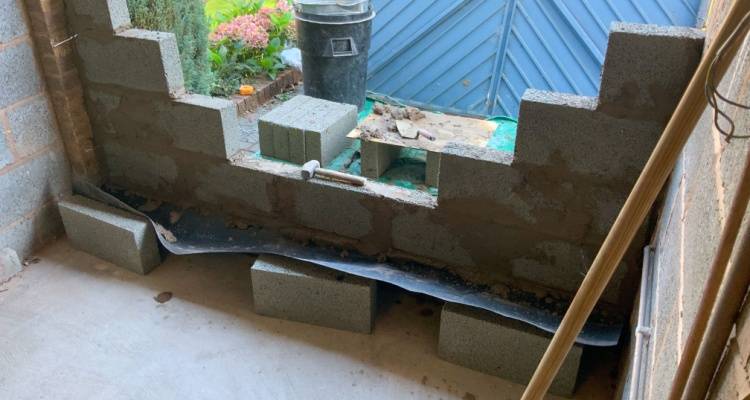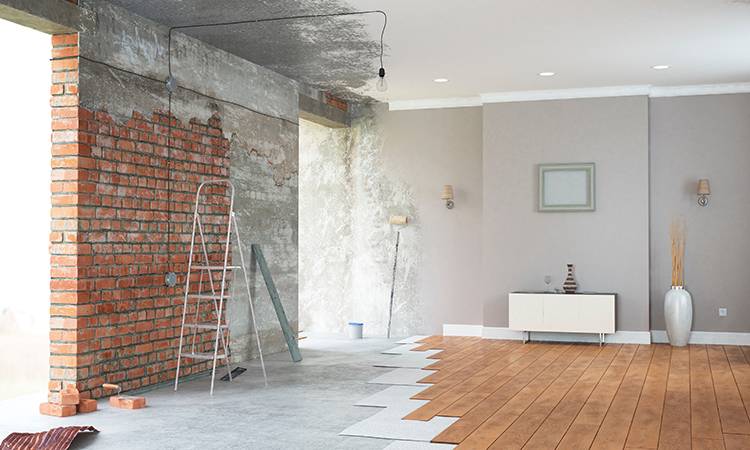10 Reasons to Do a Loft Conversion
Wondering where or not to have your loft converted?
In this blog we’ll discuss ten of the top reasons why a loft conversion is a smart move. By considering these benefits against the cost and any potential challenges, you’ll be able to make a more informed choice.
Let’s begin!

1. Increased Living Space
Of course, the primary reason why a household will consider a living space is virtually always to create additional living space.
This might come in the form of an added bedroom, a work-from-home office, a new bathroom, a games room or even a creative studio. Of course, other potential uses exist but these are among the most noteworthy!
Fresh living space can provide you with a chance to add an entirely new use space to your home or even act as a way to simplify free up space elsewhere (e.g. you may currently use the corner of your living room as a home office but with a converted attic space, you can then free up more space in your living room and created a dedicated home office room in your loft).
2. Enhanced Property Value
Loft conversions also have the potential to increase a property’s value by around 15-20%. Of course, its increased value in practice will vary on a case-by-case basis, so it’s worth discussing this with the installation team should you hire one and go ahead with a loft conversion. In some cases, the value added may be closer to 10% while in others it may exceed 20%.

Along with enhancing your home’s value, a loft conversion will likely increase kerb appeal. That is to say, it can increase the chances of given homebuyers on the market deciding to make an offer to purchase your property given the many associated benefits as this list highlights!
3. Avoiding Moving Costs
If you are really keen on adding more living space to your home while being willing to move property, a loft conversion (where other options are not available) can act as a simpler and potentially cheaper solution.
You may, of course, be able to find a satisfactory deal if you were to move home (i.e. you do not make a significant loss or alternatively you even make a profit - to one degree or another - when moving homes). However, the cost of moving in itself can often come to thousands of pounds and in quite a few cases exceed £10,000.
While a loft conversion will likely cost more than moving a home, you’ll also need to factor in the expenses and non-financial downsides that matter all the same, whether it be the hassle or leaving behind a familiar setting and your community. With all this in mind, a loft conversion may be the better approach.
4. No Need to Sacrifice Garden Space
If you do have sufficient space in your back garden to allow a rear extension, a loft conversion may prove more appealing. This will be especially true if you’d much rather keep your garden space as it is.

Of course, a side return extension may be a suitable third option, though depending on the size and design of your property, it may not offer sufficient room (generally taking up the property’s outdoor side entrance space). So, a loft conversion may be right for you if you’re looking for a fairly roomy additional living space while not touching your back garden.
5. The Capacity to Customise
While this benefit can apply to other ways of adding more living space or otherwise altering your home for functional reasons (e.g. a rear extension), it’s still worth emphasising how customisation can help bring a fairly specific vision you might have of a converted loft to life.
Personalisation, while generally more expensive, can provide a way to get optimal value from a converted attic space that best suits your needs and preferences. Of course, it is worth noting that not every customisation being considered will be possible but it’s certainly worth exploring if this is something that appeals to you and you have the budget.
6. Often More Affordable Than an Extension
While pricing can vary substantially in each case (meaning for a loft conversion and an extension) depending on the size and type of construction/alteration, loft conversions are often more affordable on average.

In fact, as a broad average, extensions (particularly mid- to premium-market options) can cost £1,000s or even £10,000s more.
Again though, since it will differ depending on factors like the size and type of project (among many other price-affecting elements), you may want to get quotes for a loft conversion and a suitable house extension to get a clearer idea of what pricing may apply for you.
7. Faster Construction Time Than an Extension
Depending on the scale and complexity of the project and what source you choose to believe, you’re looking at a timescale of around 8 to 12 weeks if you were to have an extension added to your property. Unsurprisingly, certain projects will take longer.
8. Planning Permission Flexibility
Another advantage of getting a loft conversion is that planning permission is often unnecessary. This is the case so long as the proposed loft conversion meets planning permission rules.

For example, per the Planning Portal with these rules being applicable to England and Wales, includes rules such as that a loft conversion cannot exceed the height of the current roof and that any volume enlargement is not 50 cubic metres greater than the initial roof space (or 40 cubic metres for a terraced house).
Rules may differ in Northern Ireland and Scotland and, either way, if in doubt, you can always contact your local council for clarity. Also, you should note that any loft conversion project must still adhere to Building Regulations, which is one of the various reasons why you must hire suitable professionals for this type of work.
All in all, planning permission often proving unnecessary is another key benefit to having your loft converted into a fresh usable space. What’s more, there’s arguably a higher chance that planning permission will be required if you were to opt for a house extension, though this would depend on the scale of the project, among a range of other factors.
9. An Opportunity to Improve Insulation
When having a loft converted, it acts as the perfect time to have your loft insulated. Not only does this make a ton of sense in ensuring the newly converted loft space can keep the heat in for the benefit of those using the space but loft insulation can benefit the property as a whole.
A loft conversion that features loft insulation can improve a home's energy efficiency and, in turn, potentially reduce heating bills by hundreds of pounds annually. It is worth noting, though, that the price of loft insulation can vary substantially, so this is important to consider when determining whether or not a loft conversion is for you.
10. Future-Proofing Your Home
Last but not least, properties with loft conversions are becoming more commonplace in the 21st century. As time progresses, loft conversions may become less of an added bonus and more of a semi-expectation among homebuyers. Ultimately, the kerb appeal of a loft conversion may increase with time and make life easier should you wish to sell your home years down the line.

Of course, many other benefits exist such as the ability to look at the stars through skylight windows and said window units also providing access to natural light as well as day time views that won’t be quite possible on lower floors. Obviously, it’s important to always look out skylights safely, day and night.
All in all, though, the ten key reasons to do a loft conversion discussed today make a strong collective case for having your loft transformed into a functional and aesthetically pleasing loft space!
Last updated by MyJobQuote on 2nd April 2024.







